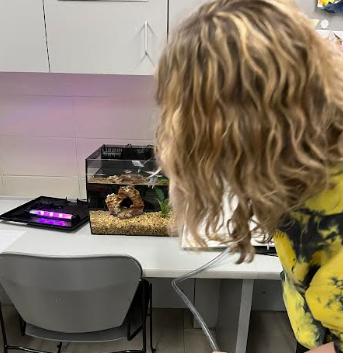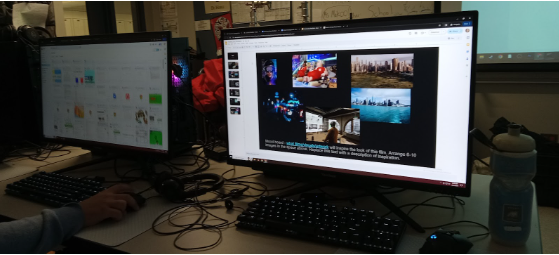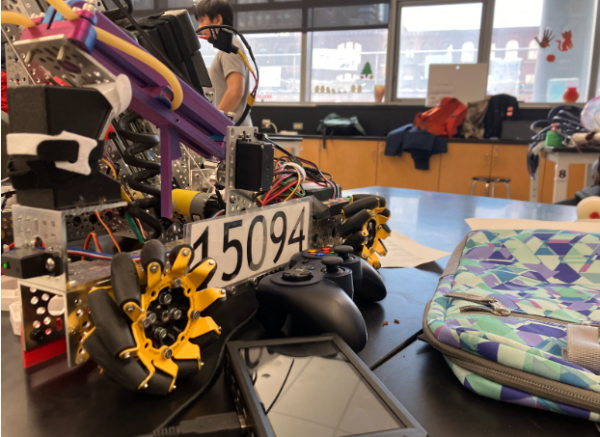Aspen transition puts CPS in a tight spot
Goodbye IMPACT, hello consequences
The transition to new ‘Portal’ websites is proving to be one of the most important yet for CPS– but it’s lofty goals are turning it into one of their most controversial moves yet.
After holiday break, CPS will begin the wide release of its new Parent Portal and Student Portal websites, powered by the Follett Aspen student information system (SIS). Aspen was announced as the winning vendor in CPS’ search for a new SIS in 2016, and CPS has been working with Follet since then to get the new system up and running.
“We’ve been incredibly happy to help CPS implement Aspen’s unique tools and features across the city of Chicago,” Follett said. “We think it’ll be a big improvement.”
The current system powering the websites, called Gradespeed, a part of CPS’ larger IMPACT digital infrastructure, still shows many of its’ roots from when it was created in 1998, and has been left completely untouched since 2009, due to a series of acquisitions and mergers that have left the company defunct.
Now that Aspen is almost ready to be rolled out, CPS has been hard at work making sure that teachers and faculty are prepared for the new system– it’s gone under multiple stages of beta testing, lots of documentation and more– but arguably the biggest part of the Aspen rollout has been the introduction of so-called ‘change champions’ into schools throughout the city.
“Our job was mainly to help facilitate the training for everybody else,” said Assistant Vice Principal Eric Fay, one of Jones’ 5 change champions. “That means that we went to some special training over the past summer, and then got together and set up a training plan for all of the teachers and staff at Jones.”
Others are critical of CPS for how they’re handling the transition. To make the January 7th launch date, teachers are getting more work to do than they otherwise would’ve. This, according to Dr. Fay, has included making paper records of grades, understanding and learning the new system and more– additional work that could affect teachers over the holiday break.
“That’s really just a precaution to make sure that no grades get lost in the mix-up,” said Fay. “We feel confident that everything will move smoothly, but just in case, we have those precautions.”
Although CPS has tried made efforts to make the transition to Aspen a clean one, some are wondering why it has to happen at all. “I just don’t understand why it should start then,” said Henry Kuzma ‘21. “It doesn’t make any sense. Why not roll it out at the end of the semester? Or the beginning of next year? Whatever they pick, it shouldn’t be in the middle of a semester. That’s crazy.”
Dr. Fay, however, had a different angle on the timing of the transition. “We chose that transition time so that teachers and faculty would have more time to learn the system,” he said. “Because if we did it over last summer and launched immediately the following school year, we wouldn’t have enough time, but if we did training while the school year was still alive, some people might forget what they learned in training the previous year.”
CPS has made a large public-facing effort to promote the new system as well. Articles about the transition are on the front page of CPS.edu, and their dedicated website to the transition has been updated several times to add content and help answer questions.
Those updates have also changed the verbiage of question answers and descriptions to the point where several of the answers are vague in their meaning. When showing 3 different versions of the website to 3 different students, all of them said they felt confused after reading the sites’ FAQ.
“Honestly, it doesn’t make a lot of sense,” said Wilson Kenny ‘21. “It’s hard to get a lot of meaning out of. There’s a lot of filler,” said Henry Kuzma ‘21.
Throughout all of these issues with the platform’s rollout, it seems that CPS still has work to do on the system itself. According to a list on the site describing the ‘Sandbox’ beta for Aspen, which went live in October, several features, including kindergarten report cards, grade requirements for sports, and student fees were still ‘in development’, indicating that there’s been difficulty in adapting the Aspen system to CPS’ existing servers and infrastructure.
“There are definitely still things we have to work on,” said Fay.
Follett put most of the blame on CPS for issues with the rollout of Aspen: “Aspen was built to be customized in a variety of ways to create an easier experience for each and every institution that uses it. While Follett maintains our promise to provide personalized assistance and consultation to our customers, at the end of the day the final decisions for release and release schedule are made by the customers themselves. We believe that we have drastically improved existing digital infrastructures at CPS, and we’re confident Aspen will provide a dramatically easier, simpler and more user-friendly experience for everyone at CPS and Jones College Prep. We look forward to supporting its students and teachers now and into the foreseeable future.”
CPS did not respond for comment on Follett’s statement or the issues regarding the rollout of Aspen.









Pamela Segal • Apr 23, 2019 at 5:45 am
Aspen is extremely detailed and difficult to use. Gradebook was much more user friendly. The training was all on line , teachers did not have a representative from Aspen come to train us, and each action took a long time to complete. Putting this system out at the end of the year was not smart. I am up at 4am trying to refresh my memory of the
online training. The Board of Education should consult teachers before choosing programs for grading.